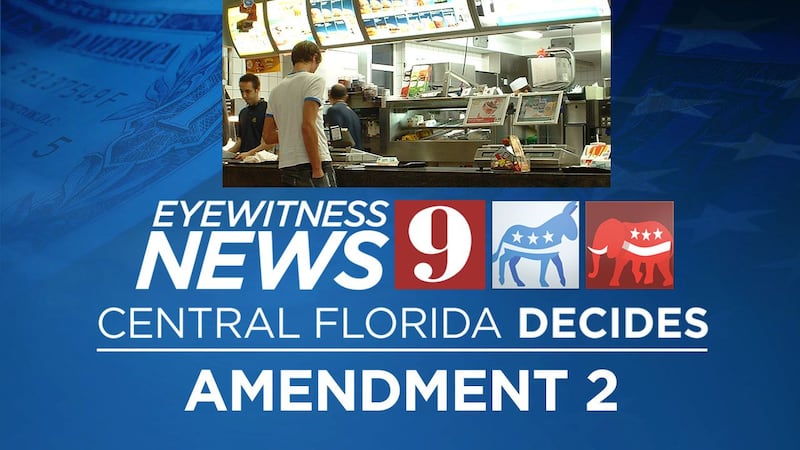ORANGE COUNTY, Fla. — Eyewitness News is peeling back more layers of a controversial proposal to raise Florida’s minimum wage to $15 by 2026.
It’s one of the ballot initiatives next month as Amendment 2. If passed, Florida’s minimum wage will increase from $8.56 to $10 next September, and $1 more every September after that until we get to $15 in 2026.
Earlier this month, Cristian Cardona, 21, took part in a demonstration to bring attention to Amendment 2.
Amendment to increase minimum wage to $15 on this year’s ballot
Cardona, who works at McDonald’s, is all for it. His dad is a construction worker and his mom is a custodial worker at a bank. Each makes less than $12 an hour.
Cardona and his family immigrated here from Columbia 12 years ago and have been stuck in low-paying jobs ever since.
“We are not able to save and afford to take time off if we get sick, or maybe go to school, and learn (a) trade and better ourselves,” Cardona said. “And this is the reality not just for myself, but for millions here in Florida.”
A think tank in Orlando called the Florida Policy Institute also supports Amendment 2, and estimates gradually raising the minimum wage would bring 1.3 million Florida households out of poverty.
You can vote to increase Florida’s minimum wage: 9 things to know about Amendment 2
But Dr. Sean Snaith, an economist with the University of Central Florida, has a warning.
“If the price goes up, the quantity demanded goes down. That is just basic economics,” Snaith said. “When you raise the price, artificially, of labor, the demand for labor goes down. So you know, fewer of these people will get jobs, some of them will see reduction in hours.”
He also said a business might “pass on these higher minimum wages in the form of higher prices for their customers. The minimum wage worker that may see a higher minimum wage now realizes that, he’s got to pay more for that pizza.”
9 things to know about the history of minimum wage
Cardona said if businesses have to balance out the books by taking it out on their customers or workers, “then there’s probably something wrong with their business model, if that is what they run on, on exploiting poverty.”
Cox Media Group









